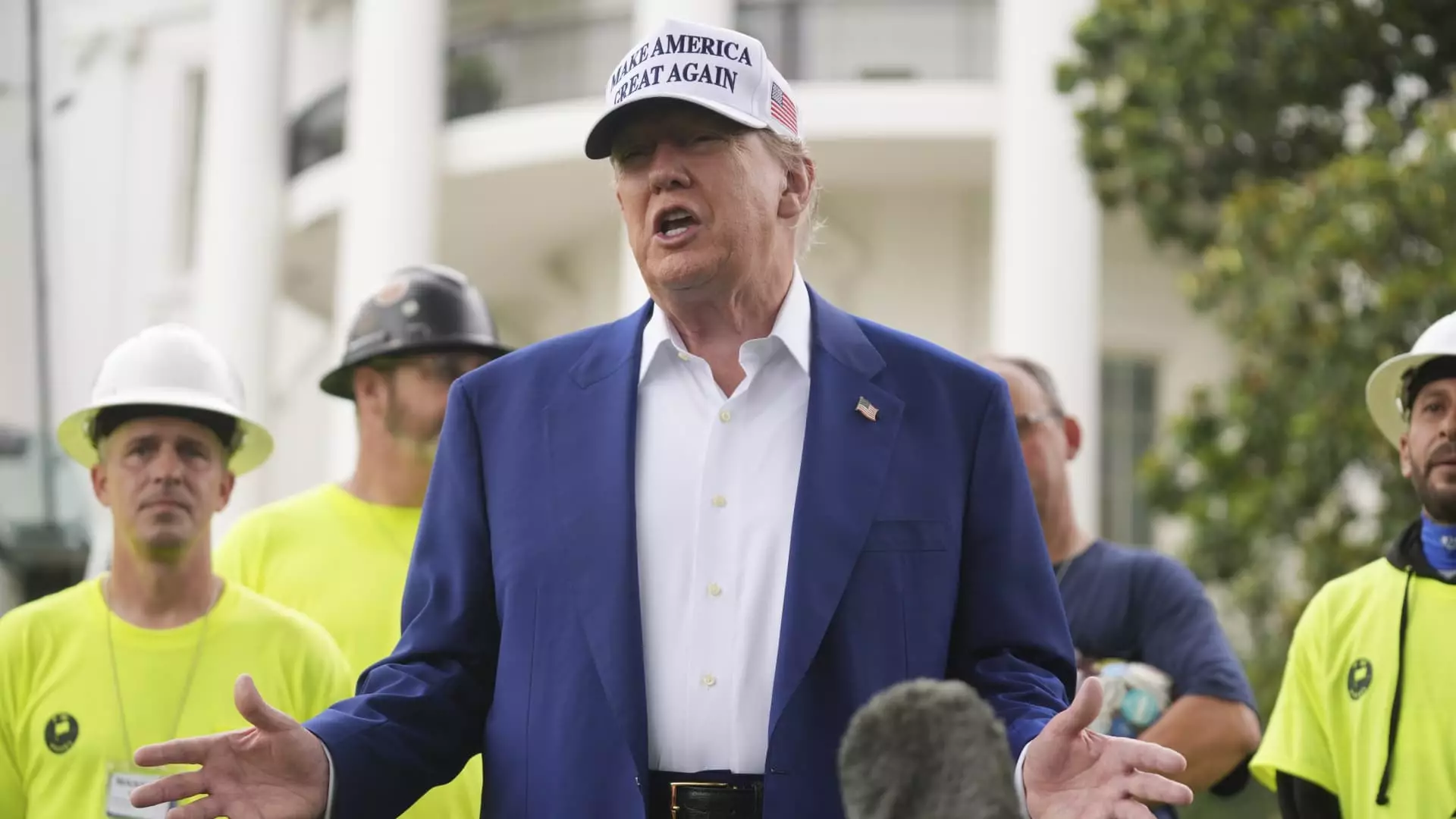The Federal Reserve has long been a cornerstone of the American economic framework, a bastion of stability amidst fluctuating political tides. Yet, recent remarks from former President Donald Trump shine a glaring light on the perils of undermining this vital institution. With his characteristic bluster, Trump accused Fed Chair Jerome Powell of being “stupid” and suggested that the current interest rates should be lowered by at least two percentage points. Such incendiary language and misguided beliefs reveal not only Trump’s contempt for the Fed but also his profound misunderstanding of its role in the economy.
The upcoming Federal Open Market Committee meeting merely amplified Trump’s vitriol, as he effectively positioned his criticism just as the committee was poised to announce its decisions. It exemplifies a troubling trend where political posturing threatens to undermine the independence of the Fed, a body that must operate free from the whims of partisan interests in order to safeguard the nation’s economic health.
A Dangerous Game of Politics
Trump’s frequent attacks on Powell and the Fed signal a dangerous intertwining of politics and monetary policy—a fusion that is deeply concerning for the long-term vigor of the U.S. economy. Trump’s remarks imply that he sees the Fed’s actions, or lack thereof, through a distinctly political lens, as if interest rates are a tool for electoral gain. By blaming Powell for the financial pain caused by higher interest rates, Trump is not only deflecting responsibility but also perpetuating the narrative that the Fed should bend to the political winds—an idea that could spell disaster for the nation’s financial stability.
This call for lower interest rates overlooks a critical point: the Fed’s mandate is to control inflation, support maximum employment, and ensure moderate long-term interest rates—objectives that do not always align with immediate political wins. Trump’s insistence that inflation is non-existent flatly ignores the complexities of economic dynamics. Ignoring these complexities out of a desire for short-term gains could lead to a reckless disregard for inflation, ultimately putting the economy at risk.
An Insult to Economists Everywhere
Perhaps most concerning is Trump’s flirtation with the notion that he would do a better job than Powell at managing the Fed. This is not merely arrogance, but a blatant insult to the countless economists who have dedicated their careers to mastering monetary policy. Powell’s credibility rests not just on his education, but on years of experience and analytical rigor—a fact that Trump’s offhand comments disregard entirely. The suggestion that a political figure, with interests rooted in popularity rather than academia, could step into the role of Fed Chair without significant risk to economic stability is both naïve and dangerous.
The former president’s rhetoric dismisses the expertise and meticulous analysis that guide the Fed’s decision-making process, replacing it with a simplistic view that prioritizes populism over prudence. This, in turn, fuels a narrative that undermines public trust in the institution. When politicians denigrate real expertise for personal agendas, they risk eroding the very foundations of the institutions designed to protect economic integrity.
Financial Wisdom in Chaos
As the Fed progresses in a climate of increasing scrutiny and public pressure, the challenge will be maintaining its independence amidst staunch political criticism. Powell has reiterated his commitment to making decisions based on data and economic fundamentals rather than political pressures—something that most economists would applaud. However, in a political landscape marked by divisive rhetoric and sensationalism, the future of the Fed’s autonomy remains uncertain.
Trump’s ongoing challenges to Powell’s leadership serve as a stark reminder of the fragility of institutional independence. The Fed must navigate these tumultuous waters with caution, preserving its functional integrity while reminding the public that sound economic policy cannot afford to be dictated by political whims. Maintaining a delicate balance is of utmost importance, and while the pressure comes from the political elite, it is critical that the Fed refocuses on its foundational objectives—regardless of who fashions the narrative.

